In today’s diverse educational landscape, fostering an inclusive environment is crucial for the success of all students, including those with special needs. “Access Plus: Enhancing Inclusive Education Strategies for Diverse and Special Needs Students” delves into the importance of inclusive education, highlighting the benefits of adopting Access Plus strategies. These approaches address the challenges of traditional educational methods and provide practical solutions for creating accessible and supportive learning environments. By implementing Access Plus, educators can ensure every student receives a high-quality education tailored to their unique needs. This article explores effective strategies, essential tools, and real-world success stories, guiding educators and parents toward more inclusive educational practices.
Explore this topic thoroughly with gameshoek.com
1. Importance of Inclusive Education
Inclusive education is essential in today’s world as it ensures that every student, regardless of their background or abilities, has equal access to learning opportunities. By fostering a diverse and accepting environment, inclusive education promotes a sense of belonging and respect among students. It encourages collaboration and understanding, which are crucial for personal and social development.
Moreover, inclusive education addresses the individual needs of students by providing tailored support and resources, helping each learner to reach their full potential. This approach not only benefits students with special needs but also enriches the educational experience for all students. Exposure to diverse perspectives and abilities prepares students for real-world scenarios, enhancing their problem-solving skills and empathy.
Inclusion also leads to better academic outcomes, as students feel more engaged and motivated when they see their needs being met. Schools that embrace inclusive practices are better equipped to identify and address learning barriers, ensuring that no student is left behind. By prioritizing inclusive education, we invest in the future of all learners, fostering a more equitable and just society. This commitment to inclusion is the foundation upon which Access Plus strategies are built, aiming to support diverse and special needs students effectively.

2. Benefits of Access Plus for Diverse and Special Needs Students
Access Plus offers significant benefits for diverse and special needs students by promoting an inclusive and supportive educational environment. One of the primary advantages is personalized learning, where educational strategies are tailored to meet the unique needs of each student. This individualized approach ensures that all students, regardless of their abilities, can access the curriculum effectively and engage in meaningful learning experiences.
Additionally, Access Plus fosters a sense of belonging among students. By creating an inclusive atmosphere, students with diverse backgrounds and special needs feel valued and respected. This enhances their self-esteem and motivation, which are critical for academic and personal growth. When students perceive that their unique contributions are recognized, they are more likely to participate actively and confidently in classroom activities.
Access Plus also equips educators with the tools and strategies necessary to address diverse learning needs. Teachers receive specialized training and resources to implement inclusive practices effectively. This professional development enables them to create adaptive lesson plans, use assistive technologies, and apply differentiated instruction techniques.
Moreover, Access Plus promotes collaboration among students, encouraging peer support and social interaction. This helps to break down barriers and build a community where all students can thrive. By leveraging the strengths of each individual, Access Plus creates a dynamic learning environment that prepares students for success both in and out of the classroom.
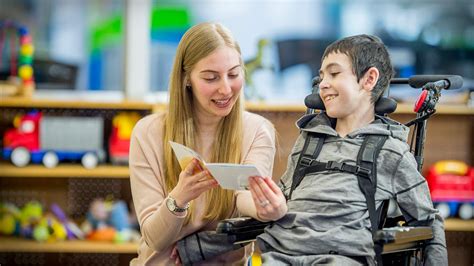
3. Challenges of Traditional Educational Approaches
Traditional educational approaches often fall short in meeting the needs of diverse and special needs students. One of the main challenges is the one-size-fits-all curriculum, which assumes that all students learn at the same pace and in the same way. This lack of flexibility can result in some students being left behind or disengaged, as they struggle to keep up with the standard expectations.
Another significant challenge is the limited availability of resources and support for students with special needs. Traditional classrooms may lack the necessary assistive technologies, specialized materials, and trained personnel to adequately support these students. As a result, students with disabilities may not receive the accommodations they need to access the curriculum fully.
Additionally, traditional approaches often emphasize rote learning and standardized testing, which may not accurately reflect the abilities and potential of all students. This focus can overlook the diverse talents and learning styles present in a classroom, leading to an incomplete assessment of a student’s abilities.
Moreover, traditional methods may not prioritize inclusive practices, such as fostering a sense of belonging and encouraging collaboration among students. This can result in a lack of social integration and support, further marginalizing students who already face challenges in their educational journey.
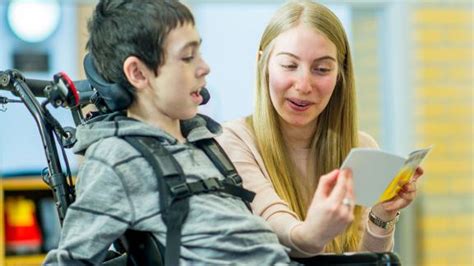
4. Implementing Access Plus Strategies in Classrooms
Implementing Access Plus strategies in classrooms involves a multifaceted approach to ensure all students receive equitable learning opportunities. First, educators must embrace personalized learning plans tailored to each student’s unique needs. These plans should include adaptive technologies, such as speech-to-text software and interactive learning tools, to support diverse learning styles.
Collaboration between teachers, special education professionals, and parents is crucial for developing and refining these strategies. Regular meetings and open communication ensure that everyone involved understands the student’s progress and can make necessary adjustments.
Professional development is another key component. Teachers should receive ongoing training in inclusive practices, differentiated instruction, and the use of assistive technologies. This equips them with the skills needed to effectively support all students.
Creating a flexible classroom environment is also essential. This involves arranging the physical space to accommodate various needs and incorporating a variety of instructional methods, such as group work, hands-on activities, and visual aids.
Finally, fostering a culture of inclusion and respect within the classroom encourages peer support and positive social interactions. By implementing these Access Plus strategies, educators can create a dynamic and inclusive learning environment that empowers every student to succeed.

5. Training Educators for Effective Inclusive Practices
Training educators for effective inclusive practices is a cornerstone of the Access Plus approach, ensuring that teachers are well-equipped to support diverse and special needs students. Comprehensive professional development programs are essential, focusing on inclusive education principles, differentiated instruction techniques, and the integration of assistive technologies.
These training programs should include workshops, seminars, and hands-on sessions where educators can learn and practice new strategies. Topics might cover understanding various learning disabilities, creating individualized education plans (IEPs), and utilizing adaptive tools like speech-to-text software and visual aids. By gaining expertise in these areas, teachers can better address the unique needs of their students.
Ongoing support and resources are also vital. Access Plus encourages continuous learning through peer collaboration, mentoring, and access to up-to-date research and materials. Creating a network of support among educators fosters an environment of shared knowledge and collective problem-solving.
Moreover, training should emphasize cultural competence and sensitivity, enabling teachers to respect and value the diverse backgrounds of their students. By understanding and embracing these differences, educators can create a more inclusive and welcoming classroom environment.
By investing in comprehensive training for educators, Access Plus ensures that all students receive the personalized support they need to thrive academically and socially.
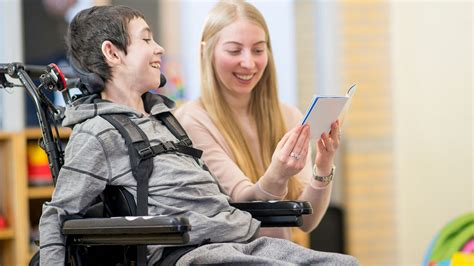
6. Utilizing Technology and Resources for Diverse Learners
Utilizing technology and resources is vital for supporting diverse learners within the Access Plus framework. Assistive technologies, such as speech-to-text software, audiobooks, and screen readers, provide crucial support for students with special needs, enabling them to access and engage with the curriculum effectively.
Interactive tools like educational apps and online platforms offer personalized learning experiences tailored to individual strengths and areas for growth. These resources facilitate differentiated instruction, allowing students to learn at their own pace and style.
Additionally, incorporating multimedia elements, such as videos, infographics, and interactive simulations, caters to various learning preferences and helps make complex concepts more accessible.
Access Plus also emphasizes the importance of providing educators with robust digital resources and training on how to integrate these technologies into their teaching practices effectively. By leveraging the power of technology and innovative resources, Access Plus creates a dynamic and inclusive learning environment where all students can thrive, regardless of their abilities or backgrounds.
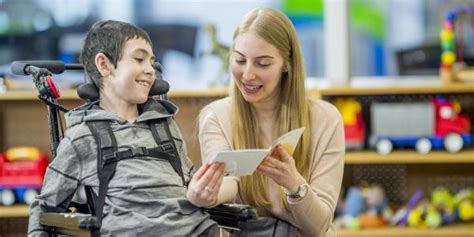
7. Key Features and Tools of Access Plus
Access Plus offers several key features and tools designed to enhance inclusive education for diverse and special needs students. Central to its approach is the provision of personalized learning plans that are tailored to meet each student’s unique needs. These plans are supported by a range of adaptive technologies, such as text-to-speech software, interactive digital tools, and assistive devices, which facilitate access to the curriculum and foster engagement.
Another essential feature is the comprehensive professional development resources provided for educators. Access Plus equips teachers with training on inclusive practices, differentiated instruction, and the effective use of assistive technologies. This training helps educators create supportive and adaptable learning environments.
Access Plus also includes collaborative tools that enable communication between teachers, parents, and special education professionals. This collaboration ensures that everyone involved is informed and can contribute to the student’s success.
Additionally, Access Plus offers analytics and reporting features that track student progress and measure the effectiveness of implemented strategies. This data-driven approach allows for continuous improvement an
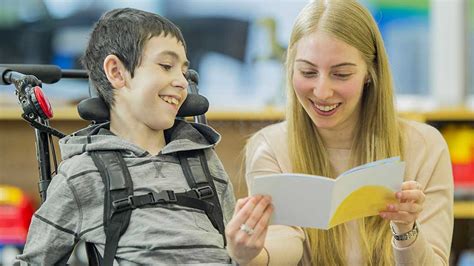
8. Measuring Impact and Success Stories of Access Plus Implementation
Measuring the impact of Access Plus involves evaluating both qualitative and quantitative outcomes to assess its effectiveness in promoting inclusive education. One key method is through data analysis, which tracks academic progress, engagement levels, and the effectiveness of personalized learning plans. By analyzing student performance metrics and feedback, educators can gauge how well Access Plus strategies are addressing individual needs and making adjustments as necessary.
Success stories from schools and educators who have implemented Access Plus provide valuable insights into its impact. For instance, schools that have adopted Access Plus often report improved student outcomes, such as higher academic achievement and increased participation in classroom activities. Stories of students who have thrived under Access Plus highlight its ability to support diverse learning needs and foster a more inclusive environment.
Additionally, feedback from educators and parents about their experiences with Access Plus can reveal its strengths and areas for improvement. These real-world examples help demonstrate the tangible benefits of Access Plus and guide ongoing refinements to enhance its effectiveness in creating supportive and inclusive learning environments.

Incorporating Access Plus strategies into education transforms learning environments by fostering inclusivity and addressing diverse needs. By leveraging personalized learning plans, adaptive technologies, and comprehensive educator training, Access Plus creates supportive classrooms where every student can thrive. The positive impact and success stories of its implementation highlight the importance of embracing inclusive practices t
gameshoek.com
